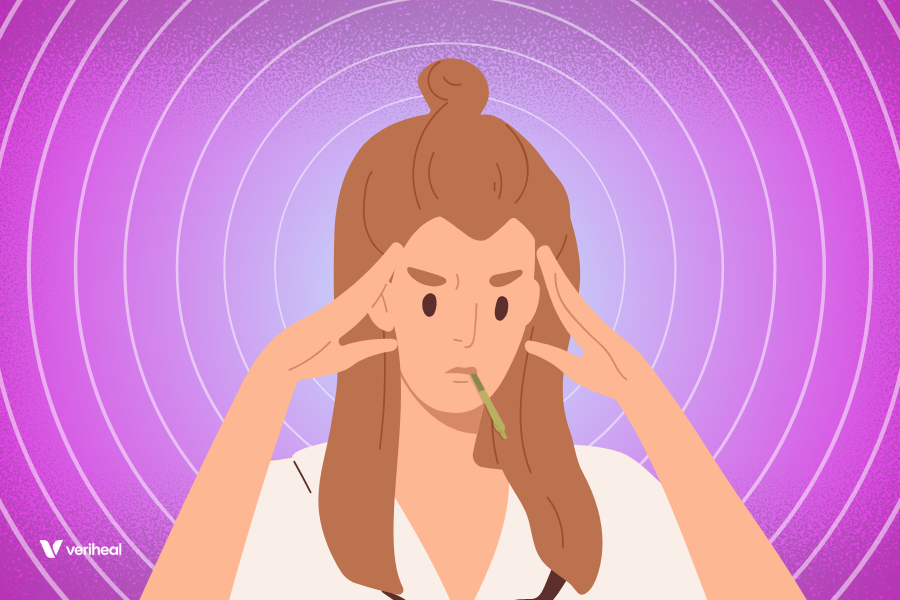Have you ever become so involved with an activity that you forget about about everything else? Did this leave you feeling like you were completely present or “in the zone”? In positive psychology, such experiences characterize a state known as “flow.” Flow is a cognitive state where a person is completely immersed in an activity, such as painting, chess, writing, prayer, or athletics. In a state of flow, a person experiences intense focus and creative engagement leading them to pursue an activity relentlessly just for the sake of doing it. This often leaves individuals with a particular sense of having completely abandoned awareness of time and self.
Cannabis is said to produce similar feelings in users. In fact, it may even facilitate the experience of flow when paired with activities like drawing, painting, making music, or running. Cannabis’ flow-like effects can provide consumers with many of the same benefits derived from a flow state like improved mental health and general well-being.
The Flow State
The concept of flow originates from the field of positive psychology. This is an approach to psychological wellness that aims at fostering personal satisfaction and contentment. Positive psychology capitalizes on individuals’ strengths and values to attain meaning in life. This is a massive departure from traditional approaches which treat mental health issues like you would a disease. Positive psychology, meanwhile, looks at well-being as it is subjectively experienced in the lives of individuals, emphasizing practices like mindfulness and interpersonal connectedness.
The term “flow” was coined by the influential Hungarian-American positive psychologist Mihaly Csikszentmihalyi. During his time in graduate school, Csikszentmihalyi studied the creative process of artists — fascinated by their relentless persistence in their creative tasks.
These artists would zone in on their creative tasks to the point of ignoring their hunger and fatigue. He was further intrigued by the subjects’ loss of interest in the project once it was completed. He concluded that there was some level of importance attached to the creative process itself, rather than the end result.
Achieving flow is associated with a personal experience of reaching an optimal state of order in oneself. The experience can manifest differently in different people, but there are some common features as listed below:
- The activity feels intrinsically rewarding – it is enjoyed and pursued for its own sake rather than for the sake of results
- Complete, overwhelming focus and concentration are devoted to participating in the activity
- One pursues clear goals that are challenging, yet attainable
- A sense of personal control over the situation and outcomes
- Feelings of peace or tranquility in being immersed in the task
- Loss of self-consciousness
- Inattention to or unawareness of other physical needs
- An altered sense of time where one’s focus on the present creates a loss of awareness of time passing.
The Benefits of Flow
Flow is beneficial for both the advancement of your skills and your mental well-being. It is said to bring about benefits similar to meditation and mindfulness. Here are just some of the mental health benefits that flow can offer:
- Emotional regulation
- Enhanced task performance
- Feelings of fulfillment and happiness
- Improved motivation
- Reduced negative self-judgment
- Refinement of skills and greater confidence
The Relationship Between Cannabis and Flow
Although the experiences of a cannabis high and the state of “flow” are distinct phenomena, they still share important similarities. When a person consumes cannabis, active compounds, such as tetrahydrocannabinol (THC), interact with the endocannabinoid system, leading to altered states of consciousness. The range of effects includes an altered perception of time, positive emotional states, and enhanced creativity.
These shared experiences between the flow state and the cannabis high are important because they may point to shared benefits between the two experiences. These common effects also illuminate the ways that cannabis may promote or contribute to the accomplishment of a state of flow for a person.
Why You Should Get Your Medical Marijuana Card
Veriheal has satisfied millions of patients nationwide by giving them access to these benefits
- Larger purchase limits
- Peace of mind
- Enhanced legal protection
- Access to higher potency strains
- Save up to 25% on cannabis purchases
- Skip the line at the dispensary
Time Perception
Both cannabis consumption and flow are characterized by a sense of temporal irrelevance. This means that individuals become less concerned with the past or future and are fully engaged in the present moment.
When cannabis alters the way individuals experience time, people report feeling more “in the moment” and less concerned with past or future events. This is similar to the time distortion experienced in a state of flow, during which individuals often lose track of time because they are fully absorbed in the activity at hand.
Enhancing one’s attentiveness to being present is associated with a variety of mental health benefits that are also associated with mindfulness and meditation practices.
Emotional Benefits
Many people who use cannabis report feeling a sense of happiness, pleasure, or a sense of well-being. Similarly, flow is characterized by feelings of happiness and contentment. These pleasurable feelings both contribute and support to feelings of relaxation and reduced anxiety.
Positive emotional experiences can improve one’s general mood and feelings of contentment with life.
Creativity
During a cannabis high, some people report increased creativity and divergent thinking–particularly with sativa strains. This burst of creative energy can lead to novel ideas and insights. Similarly, the flow state is often associated with enhanced creativity and problem-solving abilities.
This means that cannabis could be beneficial in helping an individual reach a flow state by inspiring new ideas. So, by fostering the state of mind that motivates a flow state, cannabis further promotes the benefits associated with achieving this state.
Benefitting From Cannabis and Flow
While both a cannabis high and the state of flow are fundamentally different experiences — the altered states of mind they produce share important similarities. This suggests that we may gain some of the same benefits of a flow state by consuming cannabis.
By promoting a sense of being in the present moment, uplifting mood, and stimulating creativity, it is possible that consuming cannabis might help facilitate a state of flow or even produce some of the same mental wellness benefits that are associated with the flow state.
Ready to see how cannabis can unlock your flow state and the many benefits associated with it? Check out Veriheal to set your online MMJ card appointment today!
Author, Share & Comments
















